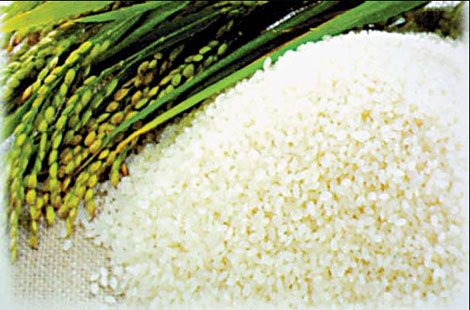


As grain prices hit record highs this year, food-importing countries have been boosting domestic supplies or securing overseas production to ensure food supplies.
CJ CheilJedang, South Korea's biggest food processor, has responded by setting up a $31 million joint venture in China with Beida Huang Group, Asia's largest grain producer, on August 11.
The Harbin-based venture will produce 14,000 tons of products a year, including brown rice protein and brown rice oil, from grain produced in northeast China's Heilongjiang province, the Seoul-based company said in a statement.
The global markets for rice protein, brown rice oil and dietary fiber are worth a combined $2.5 billion, growing by more than 15 percent annually, CJ CheilJedang says.
Edible protein is largely used in making food such as desserts, cakes, ice cream, nutrition bars and other snacks, with an annual demand of about $1.6 billion globally.
Demand for soybean protein, which can also cause allergies, accounts for 79 percent of the $ 1.6 billion demand. For that reason, increasing attention has focused on rice protein as an alternative to soybean. But the technology for processing rice protein is complicated and not widely adopted.
Last June, CJ CheilJedang successfully developed the technology for extracting brown rice protein and for processing brown rice oil. The company expects to combine their technologies with Beida Huang's stable grain supply in an effort to lay a foundation for expansion to the US and European markets.
"We expect the joint venture will help CJ CheilJedang secure grain resources and explore overseas markets," the company says.
Beida Huang Group, owned by the Heilongjiang provincial government, is Asia's biggest grain producer with $6.4 billion in assets and 11.3 million tons in annual output with an annual sale of over $4 billion. And it also owns 103 farms and pastures as well as 215 related enterprises and 18 research centers.
The venture CJ & HACL Foodtech with an investment of $31 million, is 51-percent owned by Beida Huang Group and the rest is owned by CJ CheilJedang, which plans to build three rice-processing plants near Harbin by 2009.
The joint venture is expected to reach an annual yield of 6,000 tons by 2012.
The partners also plan to intensify commercialization of other grains grown in the province, including corn and soybeans, the company said.
Kim Jin Su, president and director of CJ Cheiljedang Corp says the combination of CJ's food processing technologies and Beida Huang's grain resources will have a strong synergistic effect on the international food market.
According to analysts at Sinolink Securities, China has become the most important territory for CJ Cheiljedang's involvement in international trade. Since 1995 when it entered China, it has established offices in cities such as Beijing and Shanghai, and gradually built up a network that includes Hong Kong and Taiwan with its core businesses of food and catering, bio-pharmaceuticals , logistics, culture and entertainment.
It's not the first time that CJ Cheiljedang has tried to enter China's booming food market.
Last March, the company began its tofu business in China through a joint venture, CJ Ershang. with Beijing Ershang Group, the largest food company in Beijing. CJ began by placing its logo on 'Baiwi' tofu, Ershang Group's tofu brand.
Baiwi is one of the 400 national brands authorized by the Chinese government and JV is the first one between a national brand of China and a foreign company.
Due to the power of the Baiwi brand and CJ's refrigerated logistics system, CJ CheilJedang was selected to supply tofu to the Olympic Village.
The Chairman of Ershang Group, Sun Jie says in a media report, Baiwi has not only benefited from an influx of capital, but also has gleaned a wealth of management and marketing experience from CJ CheilJedang.
The cooperation has boosted Ershang, a traditional domestic enterprise, to further participate in the international market, he adds.
With success in the tofu market of Beijing and a bump by the Olympic Village, CJ CheilJedang is planning to expand its tofu business to other large cities in China this year.
(China Daily 09/01/2008 page6)













